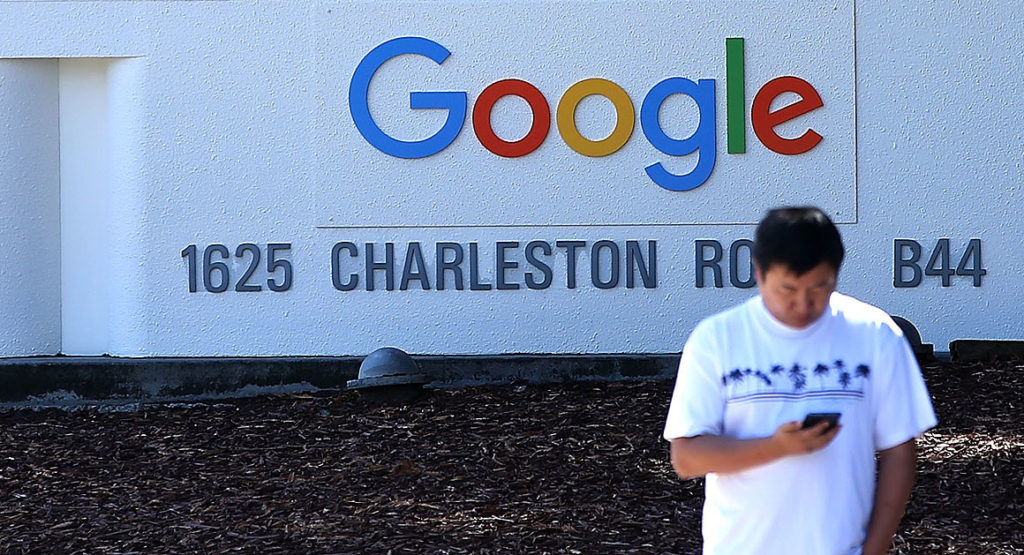The algorithms that helped the companies make their fortunes are of growing interest to investigators probing interference in the 2016 election.

The investigations into Russia’s role in the 2016 election are threatening to pry the lid off tech companies’ most prized possessions: the secret inner workings of their online platforms.
As the probes unfold into social media’s role in spreading misinformation, U.S. lawmakers are beginning to show an interest in the mechanics of everything from how Facebook weights news items to how Google ranks search results. The questions, which echo European regulators’ interventionist approach to technology, are a stark change for Silicon Valley companies accustomed to deference from U.S. officials on how they run their operations.
Rep. Adam Schiff of California, the top Democrat on the House Intelligence Committee, warned Sept. 24 about “the use of Facebook’s algorithms and the way it tends to potentially reinforce people’s informational bias.” He added, “This is a far broader issue than Russia, but one that we really need to know more about.”
A source close to the Senate Intelligence Committee said staff investigators are eager to learn whether Russian elements used Twitter to boost disinformation in Google’s search rankings. While Google has previously said it uses Twitter and Facebook links in calculating search rankings for content, it hasn’t revealed specifics on how social media mentions factor into its algorithm. Google is famously closemouthed about how its immensely valuable search engine works, only parceling out small clues over the years.
Critics of the tech industry say the time has come for the companies to let policymakers take a closer look.
“Algorithmic transparency is also key to corporate accountability,” said Marc Rotenberg, executive director of the Washington-based Electronic Privacy Information Center, which has frequently clashed with tech companies over what it sees as their mishandling of consumers’ personal data. “Without knowledge of the factors that provide the basis for decisions, it is impossible to know whether companies engage in practices that are deceptive, discriminatory or unethical.”
Technology companies have traditionally balked at the idea that they should have to lift their hoods to lawmakers or regulators. For one thing, the algorithms in some cases constitute the bulk of their assets — it’s a big reason most people use Google’s search engine instead of, say, Bing. Sharing them with a leak-prone Congress or executive branch agency could mean giving away a competitive advantage. The companies also argue that they often improve their products so quickly that stopping to document what they’ve done would slow technological progress.
“When it comes to something like a social network, trying to regulate by demanding companies turn over their intellectual property is going to have a dampening effect on innovation,” said Daniel Castro, vice president at the Information Technology and Innovation Foundation. What’s more, with platforms like Google and Facebook where people compete to get attention, “they don’t reveal exactly how it works because people would cheat,” he said.
Silicon Valley, though, has lately shown some signs of a willingness — however grudging — to explain more of how its inventions work. Facebook CEO Mark Zuckerberg, in announcing changes to address foreign election meddling, said in a Sept. 21 announcement that his company will boost transparency by making it “so you can visit an advertiser’s page and see the ads they’re currently running to any audience on Facebook.”
But some technology experts say the companies could do much more.
“Technical shock-and-awe gets used as a political shield to prevent scrutiny of what’s happening on these platforms,” said David Robinson, co-founder of Upturn, a Washington, D.C.-based tech consulting firm.
“You often have a situation where a technologist goes to a bunch of policymakers and basically says: ‘Don’t worry your pretty little heads about the details of how this works. It’s complicated and hard to explain,'” said Robinson. “But the parts that people care about aren’t the hard parts to explain,” he said, citing as an example how Facebook decides how to segment its audience for advertisers to target.
The notion that people should have more insight into how computer-driven decisions shape their lives has made headway in Europe, under the banner of the “right of explanation.” German Chancellor Angela Merkel said last year that “algorithms must be made more transparent, so that one can inform oneself as an interested citizen about questions like ‘What influences my behavior on the internet and that of others?'” And a sweeping law called the General Data Protection Regulation, set to take effect in the European Union in May, enshrines the standard that citizens deserve to know how algorithms make decisions that affect them.
Meanwhile, European negotiators on the U.S.-EU Privacy Shield — a pact that allows American companies to move data across the Atlantic — want future versions to protect EU citizens from so-called automated decision-making.
The political landscape in the United States has grown rockier for Silicon Valley in recent months. But the most immediate risk for the industry is lawmakers seizing upon Washington’s multiple Russia-related investigations to push through regulations that might not otherwise have gotten traction.
Congressional offices have sometimes had their own parochial concerns about how social media work, and they have run into roadblocks when trying to learn more.
In one incident, the digital directors for a group of lawmakers expressed frustration to representatives of Facebook during the Obama era that the company’s targeting tools made it difficult to reach their constituents, according to a source who requested anonymity because the discussions took place behind closed doors. The Facebook rep told the staffers that the company’s algorithm gave points for original content and multimedia, but the rep offered nothing more, the source said.
“Beyond that, it is a complete mystery to us,” the source said.
Source: Google, Facebook may have to reveal deepest secrets – POLITICO